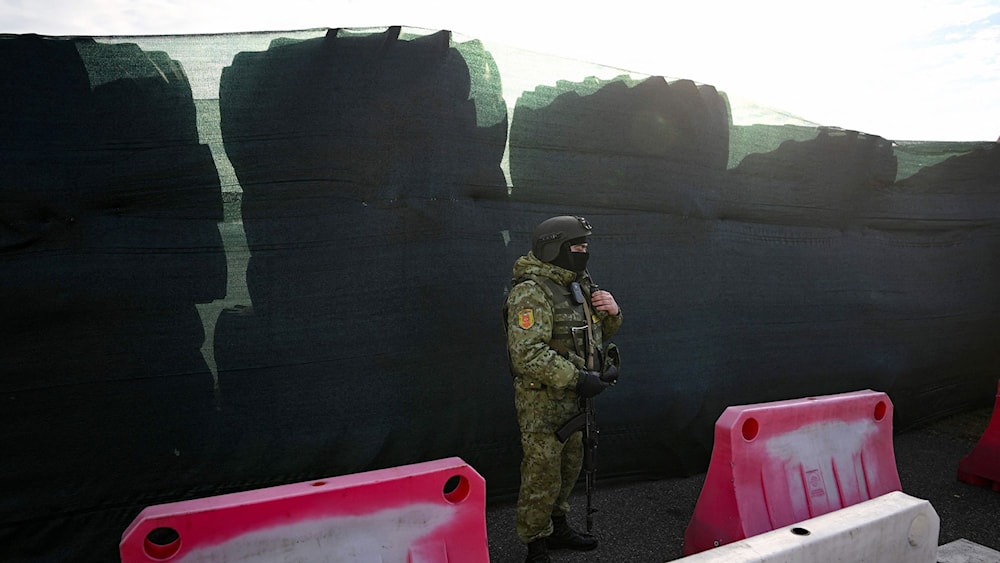Minsk, Kiev pull back forces from border to de-escalate situation
The Belarusian KGB chief says that his country had frequently communicated its concerns to Ukraine through different channels about the border buildup and emphasized a peaceful approach.
-

A Belarusian border guard keeps watch and stands by a barricade made of truck tires at the Divin border crossing point between Belarus and Ukraine in the Brest region on February 15, 2023 (AFP)
The situation on the Belarus-Ukraine border has calmed down after Ukraine withdrew additional troops from the area, said Ivan Tertel, the chairman of the KGB in Minsk.
President Alexander Lukashenko of Belarus confirmed that there are currently no issues with Ukraine and instructed Belarusian forces to also pull back following Ukraine's measure.
Tensions between Ukraine and Belarus have been high since the beginning of the Russian-Ukranian war when Russia used Belarusian grounds to carry out operations in Kiev.
"Around July 3 – July 4 our foreign intelligence detected the pullout of these units from areas adjacent to the Belarusian border,” Tertel said on Saturday according to BELTA news outlet. He also confirmed that Ukrainian forces have also withdrawn.
The KGB chief explained that Belarus had frequently communicated its concerns to Ukraine through different channels, emphasizing a peaceful approach that ultimately helped to calm the situation.
According to Tertel, on June 18, Belarusian intelligence detected an unusual increase in Ukrainian military presence near the border. This build-up included elite National Guard units equipped with advanced US-made weapons such as M777 howitzers, HIMARS multiple launch rocket systems, and Bradley fighting vehicles.
On Saturday, the president said “We need to withdraw our forces from the border as well. So that [the Ukrainians] understand that we are not going to go to war.” The head of state ordered a limited number of Belarusian commando troops to remain in the area, noting, however, that “there shouldn’t be any excessive measures.”
He highlighted that Belarus did not want to create tensions with Ukraine but felt compelled to act because of rising concerns among its citizens. To address these concerns, Belarus deployed additional military units, including special operations groups, to the border area.
Lukashenko added that his actions were in line with the commitments he made to his people, aiming to prevent the situation from escalating further.
Addressing the nation's senior military leaders, Lukashenko called on them to stay alert, particularly concerning the situation on the western border with the EU. “They are provoking us to get us embroiled in this showdown, in this war. We can’t let this happen,” he said.

 2 Min Read
2 Min Read








